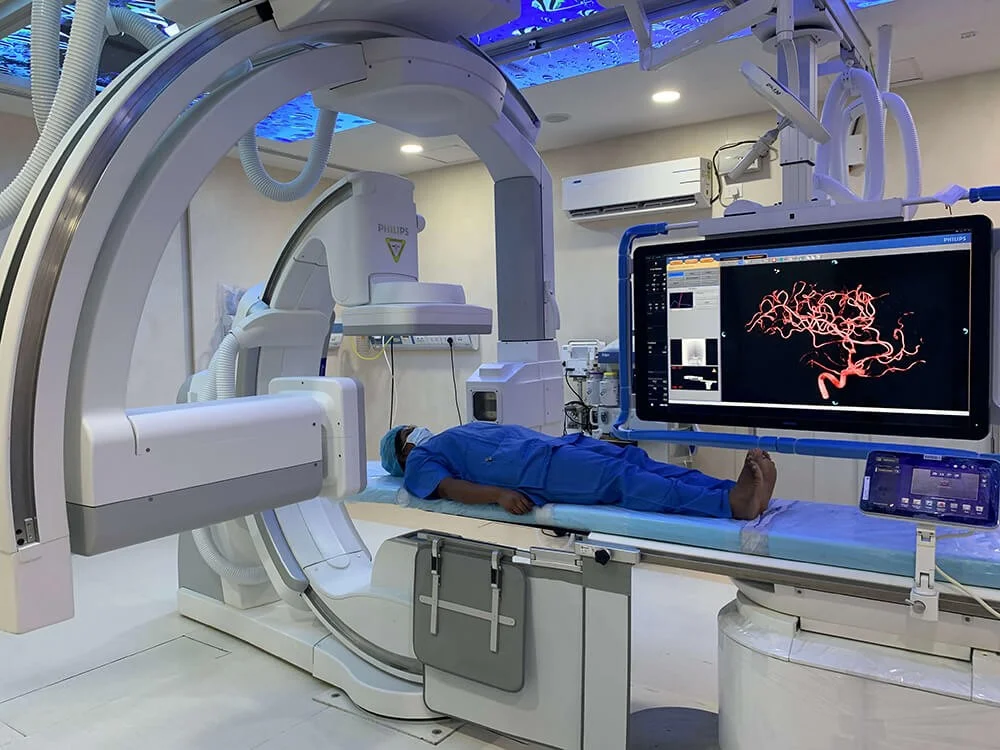By: Dr. Jaipal Chhabria
The International Day of Radiology, observed on November 8 each year, underscores the critical role radiology plays in advancing medical diagnostics, treatment, and research. In Pakistan, this day highlights the achievements and challenges within the field of radiology, reminding the public of its essential contribution to saving lives and enhancing healthcare outcomes.
Radiology is indispensable to Pakistan’s healthcare system, providing crucial diagnostic support for a wide range of conditions such as cancer, cardiovascular disease, infections, and trauma. With technologies like X-rays, CT scans, MRI, and ultrasound, radiology enables early disease detection, often leading to more effective treatments and improved survival rates. In particular, radiology is essential for cancer care, facilitating early detection, staging, and monitoring of treatment. It is also critical in trauma care, especially in regions affected by frequent road accidents and natural disasters like earthquakes and floods.
Over the past decade, Pakistan has made substantial strides in radiology. Many hospitals now have advanced imaging facilities, with private healthcare institutions increasingly adopting cutting-edge technologies. Public-sector hospitals have also established specialized radiology departments, marking a positive shift. Pakistani radiologists are contributing to global research, with local institutions increasingly engaging in international conferences and publications, highlighting Pakistan’s growing presence in the global radiology community.
However, challenges remain, especially in rural areas, where there is a shortage of trained radiologists and radiographers. Most advanced imaging centers are concentrated in urban areas, limiting access for rural populations. Equipment maintenance and availability pose additional hurdles; public hospitals often struggle to keep imaging devices operational due to budget constraints and limited resources for spare parts and skilled technicians. Furthermore, radiation safety is a concern, as many facilities lack adequate shielding and monitoring systems to protect patients and staff. Training on radiation safety is needed to ensure best practices are followed.
Education and professional development in radiology are other areas that could benefit from attention on the International Day of Radiology. Pakistan offers radiology education at several institutions, with a growing focus on specializations such as interventional and pediatric radiology. Yet, more hands-on training opportunities and updated curricula reflecting technological advancements are essential. International collaborations with institutions from developed countries could further support Pakistan’s radiology sector through exchange programs, online courses, and tele-radiology partnerships, allowing local radiologists to gain insights from global experts.
Tele-radiology, which involves the electronic transmission of radiological images, has emerged as a solution to Pakistan’s accessibility challenges. This practice allows experts from urban centers to assist in diagnosing patients in rural areas, particularly during emergencies when immediate expertise is needed. The International Day of Radiology presents an opportunity to promote and invest in tele-radiology to bridge the gap between urban and rural healthcare services.
Looking to the future, artificial intelligence (AI) and machine learning hold significant promise for Pakistan’s radiology field. AI can help detect abnormalities in images faster and with greater accuracy, which is particularly beneficial in resource-limited settings. However, for this potential to be realized, ongoing investment in technology, training, and infrastructure is crucial.
The International Day of Radiology serves as a reminder of radiology’s indispensable role in healthcare. By recognizing this day, Pakistan can raise awareness about radiology’s impact, advocate for better resources and training, and emphasize the need for safe, accessible, and high-quality radiological services nationwide. Honoring the contributions of radiologists reinforces the importance of continued investment to ensure that all Pakistanis, regardless of location, have access to the life-saving benefits of radiology.


